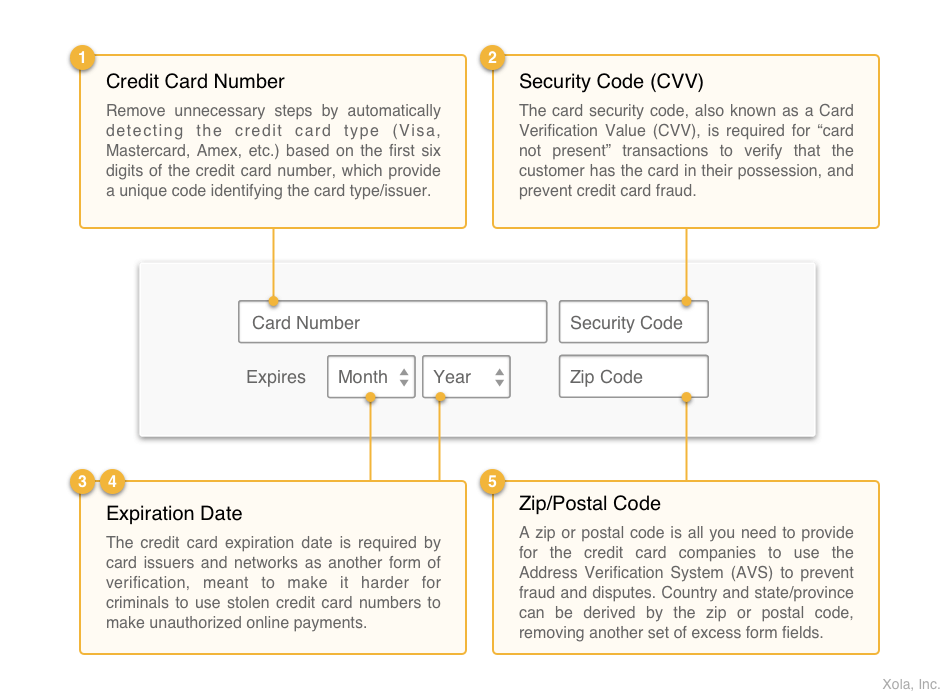
Spending money is stressful. And so is the risk of credit card fraud.
The moment your website visitors encounter the credit card details section on your checkout is pivotal. Anxiety levels are already high. It’s important that your online booking system does not add to that stress or frustration.
A credit card collection section with too many form fields is a recipe for high abandonment rates and less bookings. At the same time, certain information is required to verify transactions and reduce the risk of credit card fraud. So how do you know what to collect?
Here are the most important fields you need to collect credit card information safely, without hurting your checkout conversion rate.
The Only 5 Credit Card Fields You Need
For most transactions you only need information from five fields to safely process credit card payments through your online booking system. If your online booking software requires more than these five fields, it is likely a product of poor design or a poor understanding of credit card payments and fraud prevention.
Here are the five fields you need to process credit card transactions securely:
1. Credit Card Number
Remove unnecessary steps by automatically detecting the credit card type (Visa, Mastercard, Amex, etc.) based on the first six digits of the credit card number. The first six digits of the credit card number provides a unique code identifying the card issuer.
2. Security Code (CVV)
The card security code, also known as a Card Verification Value (CVV), is required for “card not present” transactions to verify that the customer has the card in their possession (since they are not presenting the card in person), and prevent credit card fraud.
3,4. Expiration Date
The credit card expiration date is required by card issuers and networks as another form of
verification, meant to make it harder for criminals to use stolen credit card numbers to make unauthorized payments online.
5. Zip/Postal Code
A zip or postal code is all you need to provide for the credit card companies to use the Address Verification System (AVS) to prevent fraud and disputes.
Intelligent payment forms can derive the credit card’s country of origin and state/province by using the zip or postal code, which removes another set of excess form fields.
What About the Billing Address?
AVS only verifies the numeric portions of a cardholder’s billing address. For example, if the address is 102 Union Street, San Francisco, CA 91234, in the United States, AVS will only check 102 and 92346.
Requiring the full billing address when processing credit cards can help the fraud prevention system, but requires adding a large number of additional (unused) text fields.
On top of that, by default most payment systems only block payments that fail zip code verification, and do not rely on the street address. This is because there are plenty of situations where these address checks can fail on legitimate payments. For example, if a customer enters their address incorrectly, or has recently moved and not yet updated their address with their card issuer.
Conclusion
To avoid “failing at the finish line,” focus on reducing the number of steps and form fields required to complete an online payment without compromising data security or fraud protection.
For most transactions your online booking system only needs five form fields to process credit card payments and safely avoid fraudulent charges. Extra form fields are normally due to a lack of understanding about checkout optimization, credit card fraud prevention, and/or poor checkout design.
At Xola, we take your booking conversion rates and credit card fraud prevention seriously. That’s why our online checkout is optimized to require the fewest form fields while still maintaining the highest level of security.
To learn more about how Xola can help you optimize the checkout process contact us +1 (855) 909-9652, email us at join@xola.com, or click below to schedule a demo with a product specialist.






